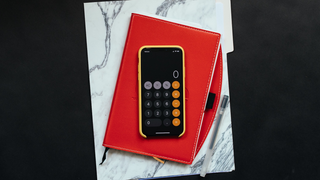A budget is an estimate of income and expenditure for a set period of time.
Thinking about money causes stress and anxiety for many people in the UK and can be an awkward topic of conversation whenever it is brought up.
Creating a budget can alleviate some of those worries, however, due to the ability to be able to limit yourself and control your outgoings much more clearly.
Do you know your car's equity position? Find out today by signing up to Car Credible for a full car finance appraisal.
But even then, the word 'budget' sends shivers down some people's spines, due to the connotations that they do restrict you and stop you from living your life and enjoying yourself.
Ultimately though, they are there to help you make informed decisions, plan ahead of time and feel a lot more secure when thinking about the future.
Incomings and outgoings
First of all, you need to start by calculating how much money you expect to be coming into your account, and then breaking down what you expect to spend money on between then and your next payday.
Your salary is the obvious place to start in terms of incomings. If you have a fixed-rate salary per month it should be fairly easy, but if this can vary, then perhaps select the average over the past 12 months.
With outgoings, start with the most important costs. This will likely include mortgage or rent, household bills, car loans, mobile phone, insurance, credit card repayments, etc.
Once you have covered those main costs, ensure you have taken into consideration any hidden costs that you may not notice leave your bank each month, as every penny counts.
After that, you will hopefully be left with a positive sum to play with that can be used across the rest of the month on more disposable activities.
If however, you find yourself with a negative sum after adding up all of your important outgoings, you could find yourself getting into debt.
If this is the case, you should consider how much you are spending on each of your monthly repayments and see where it's possible for you to cut or save money on some of them.

Fixed and variable costs
Creating the bulk of the budget is the most difficult part, but when you have got a structure in place, it should be much easier for you to break these down.
Now you are in a position to try and reduce those outgoings even more, by slashing the costs on some of the things you feel like you are overpaying on, or just don't need to be buying.
It's worth breaking all of your outgoings into fixed and variable costs.
Fixed costs are the most important outgoings we mentioned previously and are more difficult to control, such as your mortgage or rent, insurance, and bills.
While variable costs are much easier to restrict and cut down on and may lead to you being able to put more money aside in savings or into an emergency rainy-day fund.
These include things like holidays, clothes, and food. Obviously, all are very important and help us lead a better quality of life both physically and mentally, but not always completely necessary.
Everyone deserves a treat, but if you find you are spending a fair amount of your money per month on clothes, for example, maybe try to restrict yourself to just one or two new items per month, rather than five or six.
If you find yourself buying lunch when you're at work every day, you could try to limit yourself to just once or twice per week and take something from home on the other days. You'll be shocked just how much you could save per week across the course of a whole year by doing that.
Savings
It can be much easier said than done, but adding to a savings pot can be critical if you ever experience a harder period of time in your life.
If you or another member of your household loses their job, then it may mean having to cover extra costs as well until they get back on their feet.
Or if your car unexpectedly breaks down and you have to fork out for new parts, having that extra money sitting there will make a huge difference.
However, if your budget doesn't allow you to do this, then you certainly shouldn't let it get you down, but instead, look at some of your variable costs and see where you can cut back.

If you can, try to go for the 50/30/20 approach; this could really help you understand where your money needs to go.
Spend 50% of your income on things you need - the fixed costs. Spend 30% on things you want - the variable costs. And put 20% into savings.
If you can set up a savings account, start with an emergency fund, and add three to six months' worth of fixed costs in there. This will be so important if you ever lose your monthly income.
Once you have that in place, you could then look to open multiple savings accounts so you can save for separate things rather than everything in one pot.
For example, you may have savings for your next holiday in one pot, a new car in another, a special occasion pot for Christmas, birthdays, etc, and one specifically for your child or children's future.
You could then add small amounts to each every month and watch it grow over time.
Technology
There are so many new technologies around that help with budgeting and saving money.
Many banks also offer a 'save the change'-type account where anything you spend is rounded up to the nearest pound and added to savings.
For example, if you spent £6.56 somewhere, the bank would round that up to £7 and put the extra £0.44 into a savings account. It's only really small amounts of money at a time, but over the course of a year, you could save a few hundred pounds.
Even the smallest thing could help you get better at saving money and have a little less worry every month.
Flexibility
Budgets don't have to be fixed, there will be some months where you spend more than others and months where you can't put as much into savings.
Life comes at you fast, and nobody knows just what to expect next, so don't be too hard on yourself if you can't find any consistency in your monthly budgets.
But the importance of having a budget can't be denied, so if you haven't got one already, think about setting up a spreadsheet, an online tool, or even just on a piece of paper. You won't regret it and you'll start to be able to feel in control of your incomings and outgoings every month.
/money-tree.jpg)


/car-tax-disc-image2.jpg)
/money-saving-tips.jpg)
/car-tax-sorn.jpg)